In this blog post, I’ll be discussing what extreme or pathological jealousy means and what causes jealousy. When is breaking up the only way forward when your partner is too jealous – even a narcissist? When is it not too late to try and improve the situation together? What to do if you are too jealous of your partner? And what causes extreme jealousy?
What is normal and what is abnormal jealousy?
Jealousy is an emotion. Since all emotions happen in the person having them, nobody else can cause another person to feel jealous.

JEALOUS PARTNER: Does your partner’s jealousy drive you mad?
When your partner’s jealousy is getting too much, what could help? What to do when a jealous partner takes the joy out of your relationship?
Neither of you need to suffer from jealousy for the rest of your lives, even if that’s what you have got used to in the past. You are both accountable for your own behaviour and choices. This includes situations where you or your partner or both show jealousy, be it mild or extreme.
What causes extreme jealousy?
All emotions – including jealousy – are unique to the person experiencing them. Some people feel jealous when their partner greets the cashier at your supermarket with a friendly smile. Others won’t bat an eyelid until they catch their partner actually cheating on them.
There are as many definitions of cheating as there are people on this planet. Crossing or approaching that personal red line can cause jealousy. Read more about cheating in the blog posts under Cheating and my book (R)evolution for Love.
As an emotion, jealousy can be just as strong in different people. However, there reactions to identical situations can vary widely depending on our learned behaviours. Even if you are overwhelmed by extreme jealousy, you can still choose how you react. In reality, extreme jealousy is no more than an emotion. It does not give you the right to be mean or rude to your partner or anyone else. If your extreme jealousy bothers you, it is up to you to develop your emotional skills. Now!

THE JEALOUS TYPE: Am I too jealous?
“I feel so jealous because of my partner” Jealousy is a painful feeling. Use the power of your subconscious and let go of jealousy!
If your partner is or you think you are too jealous, seek help before it’s too late. Jealousy is usually a manifestation of low self-esteem, which is also the root cause for narcissism. While mild jealousy is a normal emotion, the jealous and controlling behaviour of a narcissist are signs of narcissism, which is a serious personality disorder.
So how much is still normal?
Mild jealousy is a normal emotion. If both partners are able to openly express their thoughts and feelings, it may even be beneficial for the relationship, as finding a solution to the problem can bring the couple closer. Seeing your partner still passionately caring and being protective about you can boost your ego, even if it occasionally gets too much and becomes jealousy.
We all want to be seen by our partners. However, if jealousy is the only way for your partner to show that they care, and that caring becomes a form of control, don’t hand about to see if things get better. They won’t.
Jealousy is normal, but only up to a point. It is normal to feel jealous if you feel you have been cheated or you feel your partner is flirting too much with others.
I deliberately emphasise the word feel: jealousy is your personal feeling and experience.

CHEATING: One night stand. Secret affair. The other woman.
In this blog on cheating you will get tips and peer support for moving towards a permanently better life when you have been or are cheating.
Your own distorted subconscious thoughts can make you interpret your partner’s behaviour as cheating even if nobody else would see anything inappropriate in your partner’s conduct. Your feelings and your experience are your truth. That they are not based on objective truth does not make them any less true to you. We can’t always think objectively and rationally – especially if we feel that our love relationship is under threat.
What to do if you think you or your partner are too jealous?
What is extreme, pathological, morbid jealousy?
Mild jealousy is quite normal, but if it becomes a constant feeling, it may turn into pathological jealousy. At that stage, the partners can no longer engage in a respectful discussion about the reasons for that jealousy and how it affects both partners. If you hide jealousy like an alcoholic hides a bottle of vodka, it become a wall between the two partners.
Jealousy is pathological if it starts to become a threat for the mental or physical security of either partner. A pathologically jealous person overreacts to their partners normal behaviour and accuses them of infidelity without any evidence or reason. Paranoid jealousy can sometimes even escalate into psychotic delusions. Pathological jealousy can also be a sign of narcissism. In that case, both partners should seek professional help at once, both the extremely jealous partners and the victim.
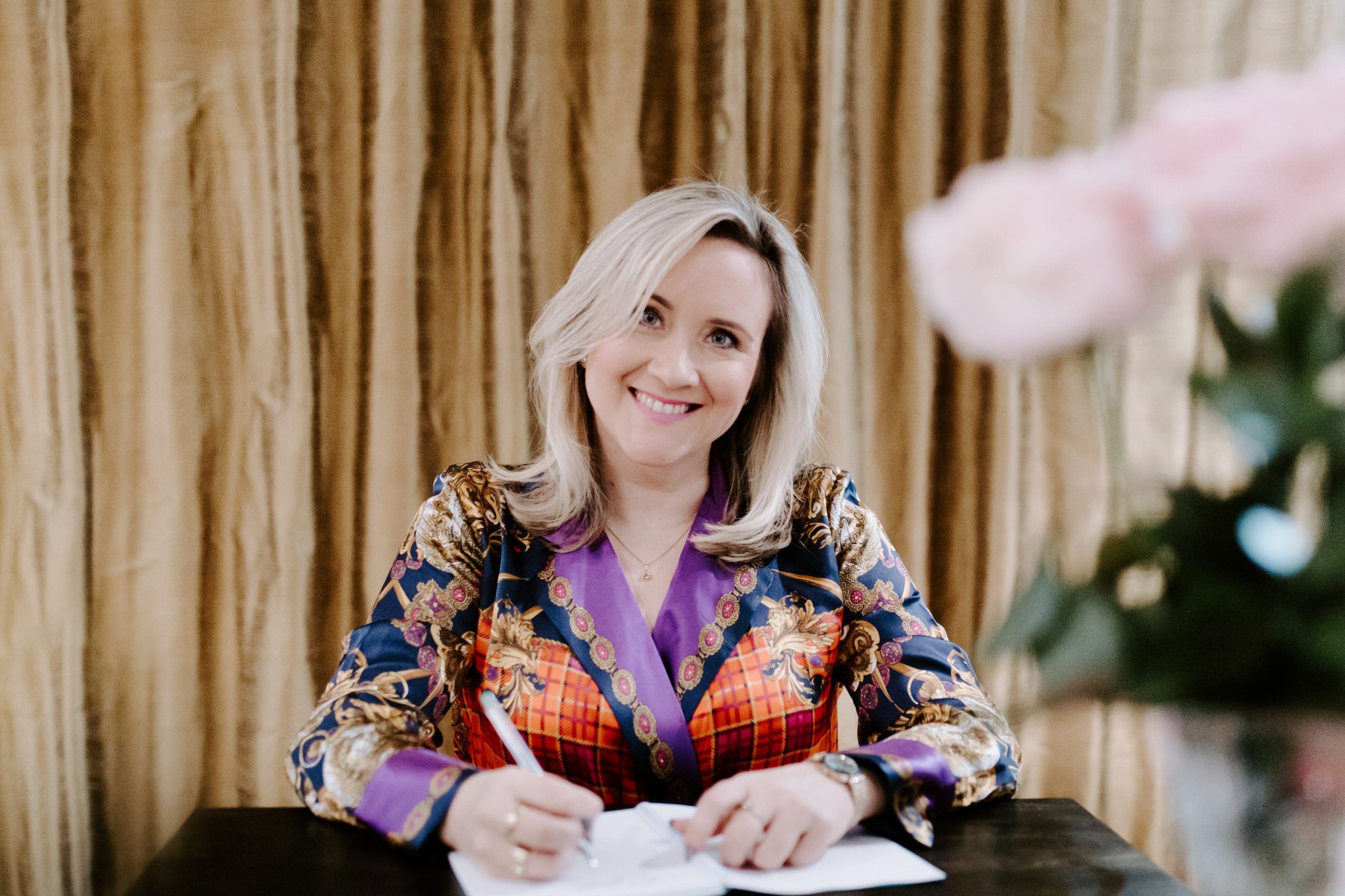
Online Coaching
Typical themes are, e.g.: finding and building better relationships with your new partner, your ex, and especially with yourself! Improving your marriage or making the
Jealousy is also pathological if a partner’s reaction is in no proportion to the other one’s mild indiscretion and turns excessive or violent. Note that mental and verbal abuse are also forms of violence.
Extreme jealousy threatens the entire relationship and the wellbeing of every family member
Extreme jealousy can manifest itself as domestic violence and can put the wellbeing of the entire family at risk. The victim in a violent relationship should leave no matter how difficult it would seem.
Typically, a partner who resorts to mental or physical abuse won’t seek help to their problems unless they have to. When an abusive partner is left, they get a chance to wake up to their own reality. The relationship may be salvageable if the abusive person seeks appropriate help and recovers. If the violent behaviour is not addressed, the relationship cannot be saved and breaking up is the only possibility. A relationship can never be anyone’s prison.
Physical abuse is not the only type of abuse.
Sometimes the words and paranoid controlling that limits a partner’s life can be more destructive than visible bruises on the skin. This behaviour is known as mental abuse. Don’t tolerate any form of domestic abuse. An abusive relationship is not a loving relationship. It is a tangle of emotions that has escalated into a sick power struggle, and both parties should seek help to end the violence.

Narcissism in a Relationship: “How to Know if My Partner Is a Narcissist?”
What are the signs and causes of narcissism? Can you make a relationship with a narcissist work? Can you heal a narcissistic partner?
Narcissism is difficult to spot in the early days of a relationship. It may eventually come as quite a surprise to find that your partner is in fact an excessively jealous and pathological controller. If you are a victim of a narcissist don’t wait to get help. Narcissist themselves also need help but it is not their partner’s job to act as a therapist to a person with a serious personality disorder. For more thoughts on narcissism in my blog posts, use the Search function.
Sometimes the biggest favour you can do to your jealous partner is to suggest that you break up.
Few of us actually want to be violent and hurt the person they love, on some level, in their odd, skewed way. A violent, pathologically jealous person is probably suffering badly from their own violence and the feelings of jealousy that feeds it. But what to do if your partner is too jealous and you feel it’s your duty or you genuinely want to help them?
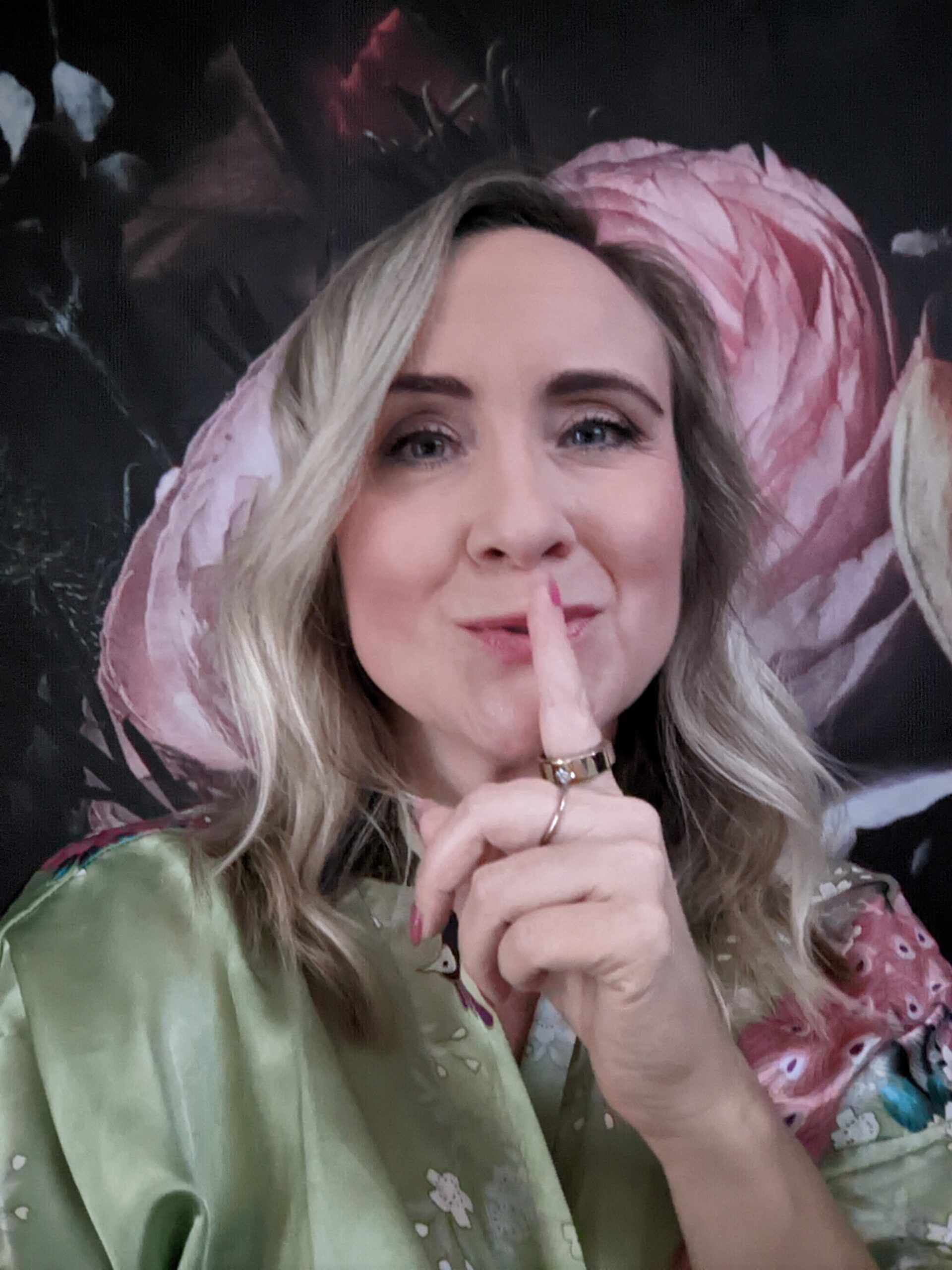
CHEATING: At what stage of evolution is your relationship?
How common is cheating in relationships? Is cheating the cause or the consequence of relationship problems and can it be stopped by love?
You can’t heal your partner to overcome their violent streak. It is your partner’s responsibility to seek treatment. No matter how selfless you are and how much you think you can or want to do it, you simply can’t. There is no such saint or magician in this world you can heal your partner. They are the only ones who can save themselves and they need professional help to do it.
Sometimes the biggest favour you can do to your pathologically jealous partner is to suggest that you break up. Breaking up serves as the welcome wakeup call to both of you to honestly examine your behaviours. If they can’t change their behaviour, the relationship cant’ continue even if you can forgive them their conduct time after time. You are allowed to make new decision about your future every day. Even today. Make those decisions for yourself.
Neither party should settle for an abusive relationship. Read for example: Violent relationship: “My partner threatened to kill me if I leave.”

Motivating You to mindshifting in many ways,
Your Coach Kati Niemi
Clinical Hypnotherapist, NLP Trainer, M.Sc.
[email protected]
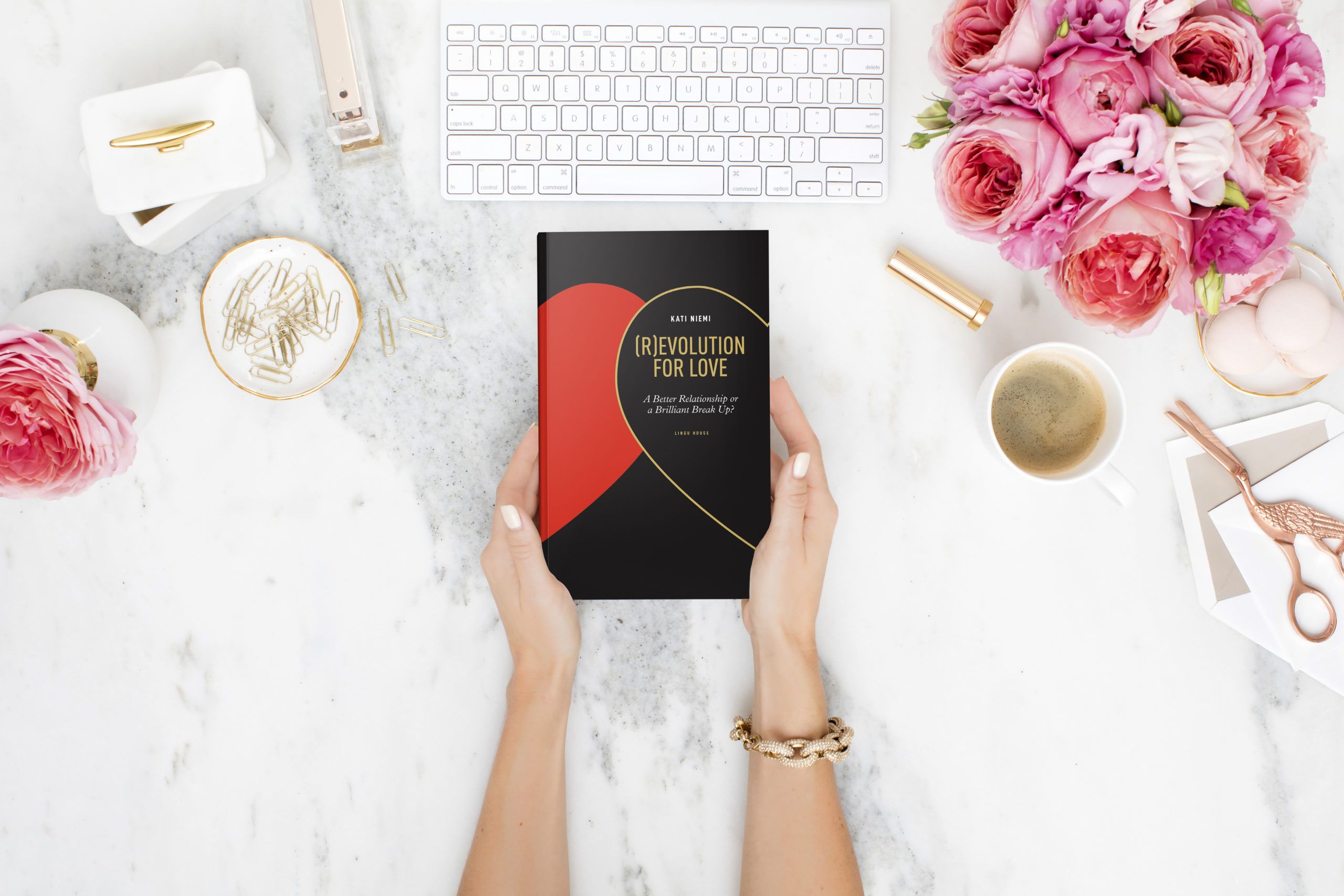
“FIVE STARS!” Book reviews: (R)evolution for Love (Amazon Books)
“Five Stars!” Editorial reviews and reader reviews of (R)evolution for Love – A Better Relationship or a Brilliant Break Up? Amazon books

FEEDBACK TO LOVE! Reader reviews (Book+Blog)
RELATIONSHIP GUIDE: BOOK REVIEWS – We are blown over by the feedback the (R)evolution for Love relationship blog and guide have received. WOW!
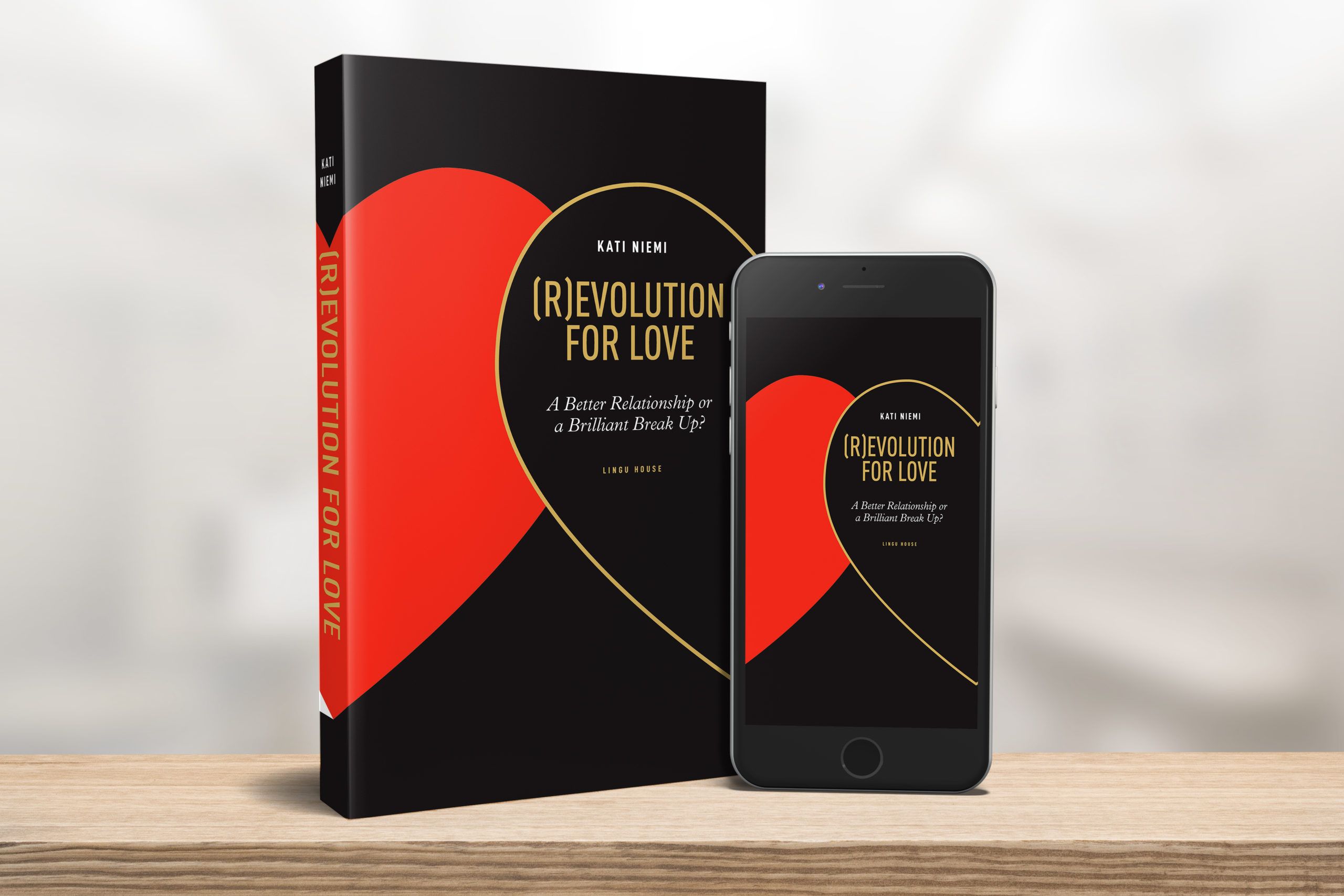
FREE AUDIOBOOK: Audible, Google Play and other stores’ free trial
Audiobook lovers benefit from FREE trial periods of book stores. Enjoy (R)evolution for Love on Amazon Audible, Google Play & other stores
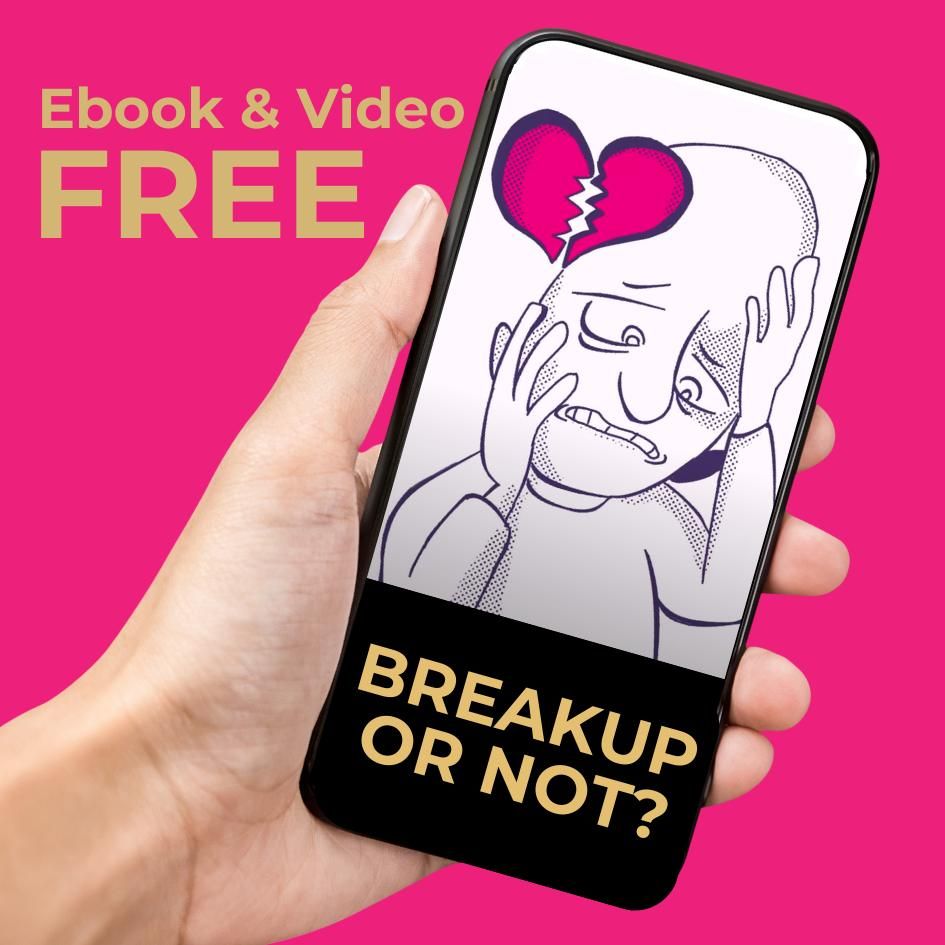
FREE EBOOK ‘I love you but…’ – To Break Up or Not to Break Up?
Refocus your energy now to improve your love life! The FREE ebook and video will help you move towards a better relationship or a successful

How to improve your wellbeing through self-development?
Science has revealed: some adults are not mentally sufficiently developed. How to improve your wellbeing through self-development?

Why does our conscious mind question the power of the unconscious mind?
Is the power of the unconscious mind fake news and is trying to harness it to achieve our full potential a waste of time? What do we mean by the unconscious mind?

INFIDELITY and the collected excuses: The good reasons for cheating
CHEATING: What is a good reason to cheat? What do the cheated partner, “the other woman/man” or the cheater choose to believe in?

What is an open relationship? Does it lead to breaking up?
What is an open relationship? Who are non-monogamous open relationships for? Is your partner suggesting consensual non-monogamy?

Narcissism in a Relationship: “How to Know if My Partner Is a Narcissist?”
What are the signs and causes of narcissism? Can you make a relationship with a narcissist work? Can you heal a narcissistic partner?

Aromatherapy for Libido & Romance – The Best Essential Oils for Love
Sense of smell influences our sexual desire and performance. Aromatherapy tips and the best essential oils for romance, libido, sex and love.

When positive thinking becomes toxic
What is too positive thinking like? Where should we focus the power of our mind and our willpower?

TO BREAK UP OR NOT TO BREAK UP? Should I stay or should I go?
How do you know if you should leave or not. How to make the decision to break up or to improve your relationship? To break up or not?


